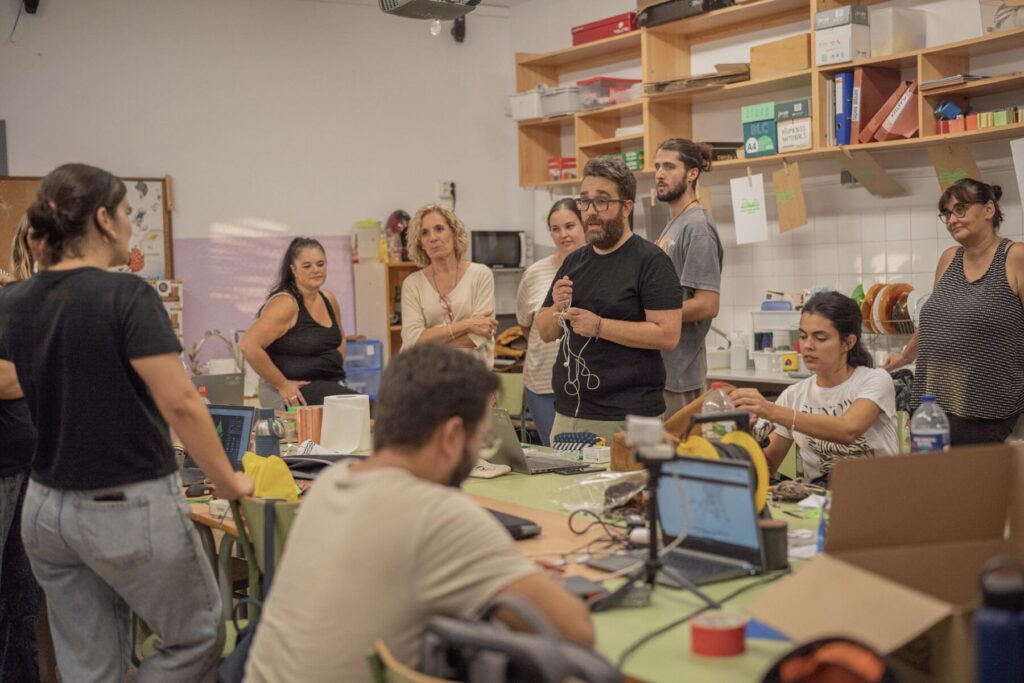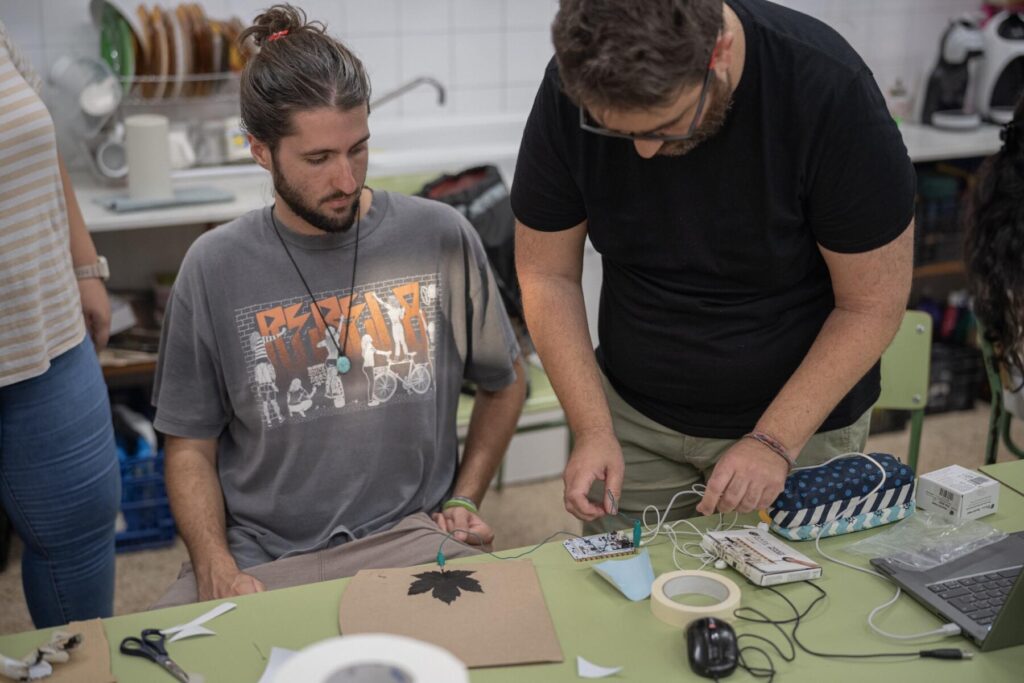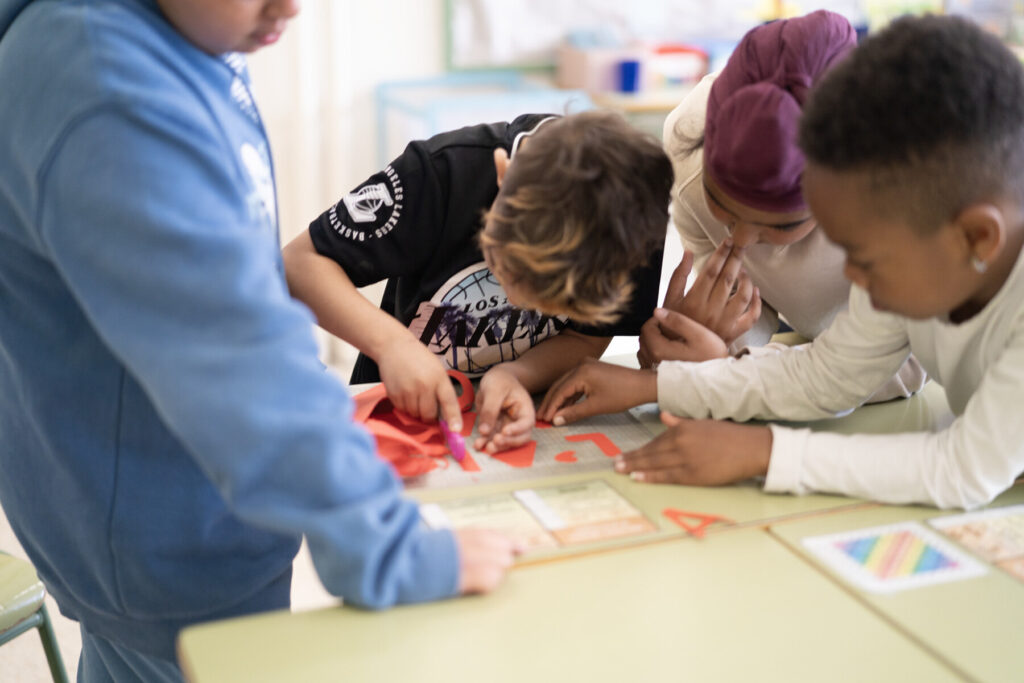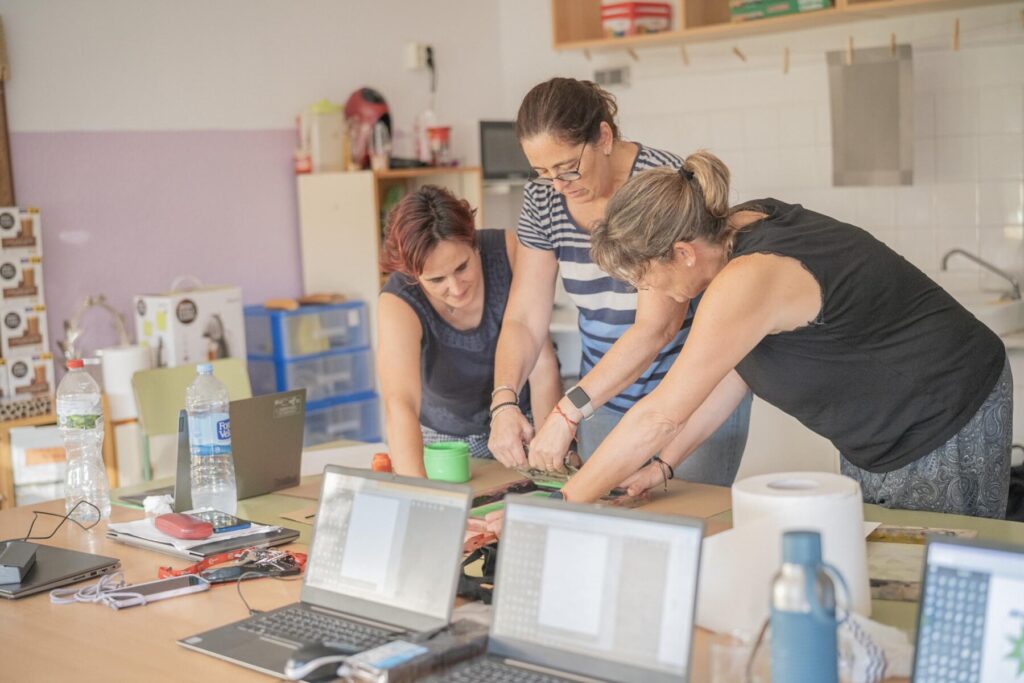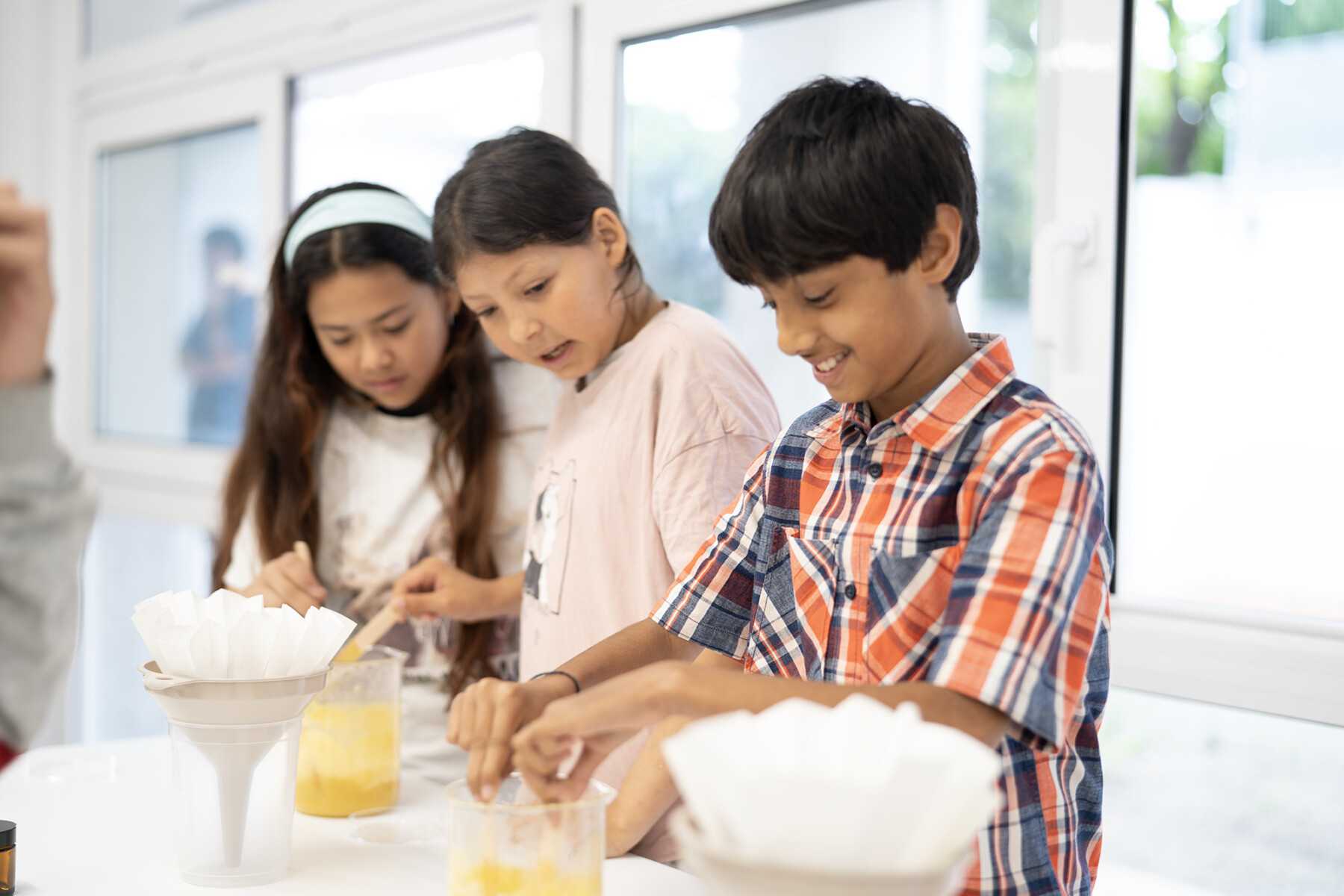
Explore, Learn and Make with DTecla
Each student, classroom, educator, and learning community is unique. Learning experiences should be unique too
DTecla is a pedagogical innovation program designed to support schools in highly complex and vulnerable contexts, with underrepresented and socio-economically disadvantaged populations, in their transformation towards designing meaningful and experiential learning. The DTecla program enhances the students’ knowledge, perception of self-efficacy, and contextualization in their daily lives, of the STEAM areas (Science, Technology, Engineering, Arts & Mathematics), through the maker philosophy, promoting equity, inclusion, and social justice.
This program aims to foster self-efficacy and scientific-technological and mathematical vocations in primary education students, understanding diversity and with a strong gender empowerment perspective, emphasizing female gender. It seeks to generate a transformation of pedagogical models in schools by creating new active learning experiences around STEAM that are connected to the local context.
STEAM is an educational approach that uses these disciplines as starting points for students’ research, dialogue and critical thinking. The importance of STEAM lies in its ability to provide students with the necessary skills to navigate the complexities of an increasingly technological and interconnected world. This is becoming increasingly crucial in fostering informed citizens capable of making well-informed decisions on social issues related to science.
The maker philosophy encourages exploration, reflection, autonomous learning and cooperative work.
DTecla promotes the creation of learning environments and experiences for meaningful projects integrating scientific-technological areas, where the student is placed at the center as the protagonist. We firmly believe that knowledge, approach and functionality in the skills related to these areas is a universal right that enables new opportunities for all students, promoting their development as critical, committed, responsible, creative people and prepared to adapt to the environment and face present and future challenges.
The DTecla Implementation strategy
So far, DTecla has been implemented in 6 schools, impacting 600 students. The program is implemented and supported in each selected school for 3 academic years.
The implementation strategy is realized in person:
- Providing guidance and support to teachers and management teams: for the implementation of meaningful and experiential learning methodologies.
- Through technological training and pedagogical innovation: for the integration of STEAM areas in education.
- Creating spaces for discussion and exchange of experiences: for the continuous improvement of educational practices.
The DTecla Community: A space to share and grow.
A key aspect in the success and sustainability of the DTecla program lies in facilitating the development of the DTecla Community, a face-to-face and digital network where knowledge, good practices, resources, tools and methodologies are shared.
This community is represented by teachers, schools, the DTecla’s driving team as well as leading individuals and entities from different fields (educational, creative, artistic, scientific-technological) who are committed to transforming the world of education and the future of children.
The DTecla community also has a digital presence through the DTecla Voltea online platform. DTecla Voltea facilitates interaction between community members and encourages collaboration and the exchange of knowledge between teachers and schools.
This virtual platform serves as a networking space for the DTecla community, allowing its members to share a variety of resources and experiences, such as:
- Educational content: teaching materials, learning situations, activities, etc.
- Implemented projects: examples of DTecla projects carried out in different schools.
- Inspiring references: articles, videos, references and other resources that can serve as inspiration for teaching practice.
- Training tutorials: step-by-step guides on the use of digital tools and technologies in education.
DTecla community extends beyond school, involving throughout the process leading professionals in the STEAM areas, social entities that promote scientific-technological learning (museums, university research groups, etc.) and, at specific times, families to guarantee the transfer of learning to the daily lives of students.
Since 2021 the project has grown in different aspects. The main actions we can highlight are:
- The validation and consolidation of the DTecla framework.
- Consolidate the training path of teachers during the 3 years of support at DTecla. This includes methodological, scientific and technological training, and design, creation and implementation of experiential and deep learning experiences in the STEAM areas.
- Development of digital tools to facilitate the implementation of the 5E methodology. For example, the Talking With tool in the exploration phase, or the scanner tool in the engage phase.
- Consolidation of a digital platform to facilitate interaction of the educational community.
- Consolidation of open educational resources accessible on the digital platform.
- Consolidation of the DTecla community where teachers who are no longer in the schools where it is currently implemented continue to interact.
- Growth in the implementation of the program in new schools of high and/or maximum complexity.
- Consolidation of analytics and data platform for validation and monitoring of the DTecla program.
- Establishment of NEW research lines.
Fab Lab Barcelona | IAAC and Fundació Diverse are working hand-in-hand to develop innovative learning environments and experiences for meaningful STEAM projects that put the child at the centre of the learning process. This approach will be implemented in more schools in Catalonia, expanding its regional impact.
